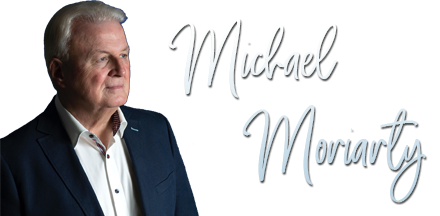The ability to be in the present moment is a major component of mental wellness – Abraham Maslow.
As we often look to the future and set our personal and career goals, we know that planning our career or life trajectory is beneficial and is far preferable than drifting along aimlessly. As we seek to be the best we can be, we create a vision of a better future. But what if we become overly obsessed about our future goals and targets to the extent that we are not sufficiently present in the here and now, where in fact, we live? What if we become fixated on the belief that success or happiness lies ahead of us and we just need to get there, and all will be well? If only we could achieve our goal, we will at last be fulfilled, contented and secure, or so we hope.
Destination addiction is a term which has been coined to describe a fixation that success is a destination that needs to be reached and we cannot rest until we get there. If so addicted, we believe that somewhere over the horizon, in the future, is where we can find success and happiness. We are so preoccupied with our determination to reach that future destination that we become psychologically absent from the here and now. As we live our lives in the pursuit of our all-consuming goals, we do not have time to enjoy the present time. We exist to achieve, not to live.
In my early working career I was always on the move, permanently restless and a slave to my to-do list. I relished in the reputation that I was a driven, ambitious person. I had a clearly focused career path and I was determined to get to my future destination. I lived by targets; I focused on the next meeting or presentation; I was always doing and rarely being. The only time I stopped driving myself to achieve my targets was when I became exhausted. I am well-versed on destination addiction as I was once an addict!
If you are focused on the future so much that you have little time for the present or if you are living your life in pursuit of an all-consuming future target or goal, and have no time to enjoy your present life, then you may also be a victim of destination addiction. There are some symptoms that may alert you to this addiction. For example, you might always feel unfulfilled or dissatisfied and cannot really enjoy life until your goal is achieved; or you are always driven to get things done, always on the run and always in a hurry to secure that promotion. If so, you need to take stock of what you are about.
In my own life I had to do that and I did so accidently. I remember driving into the city one fine morning in June. While my mind was usually pre-occupied with work issues, on this morning I did happen to notice the bright blue sky and the warmth of the summer sun. The day before me was not busy so why did I have this constant feeling of dread? Why could I not relax and be happy? Why did I feel something was going to happen, some crisis or some incident which would put me on a war footing? I was not capable of enjoying the moment and that worried me. Shortly thereafter, a friend recommended that I read the book The Power of Now by Eckhart Tolle and only after reading that book did I realise how distorted my life had become.
The book lead me on a journey of self-discovery, and helped me notice that I had little time for myself or others because I was rarely living in the present moment. I was existing in the present moment in a rather intolerant fashion. I realised that I had to liberate myself from my future obsessiveness and truly live, not just exist, in the present. This did not mean that I had to give up on my goals and ambitions, but it did mean I could not remain obsessed with them 24 hours a day, to the extent that I could never enjoy life. I also realised that while I may retain my t0-do list, I could not be a slave to my list. Everything had to be proportionate and I needed to have more equilibrium in my life.
At that time also I was following the very high profile career of Richard Branson, founder of the highly successful Virgin Group. He is an outstanding entrepreneur who heads an organisation which controls over 400 companies. Yet he always appears easy-going and casual and he is often photographed relaxing and enjoying life. I had thought that this only happens when a highly successful person semi-retires, but I now know it is all about an attitude of mind. With the right frame of mind, you can have inner peace as well as goals and you can them both simultaneously. I had to end my addiction to the idea that happiness would come with future success and accept the reality that happiness comes from within and it is available in the here and now.
I came to the clear understanding that happiness is not a a goal to be achieved in the future, and I began to see that achieving my goals was no guarantee of happiness. I made the conscious decision to end my obsessive behaviour about reaching my goals. I learned to slow down, be nice to myself and stop, look and listen. I took more notice of my environment, my friends and colleagues and I rediscovered the simple things in life that had once brought me contentment and inner peace. I rediscovered balance in life. I could no longer live my life by wishing I was in the future; I had to enjoy the “now” because it was the only time I had to enjoy.
My goals and ambitions remained important, but my new sense of awareness helped me place more importance on the benefits of inner peace. It was the recognition that for life balance I had to end the “perma-rush” of my life and take time out for myself. That did not happen overnight, and it was not easy to do. Breaking free of addiction is never easy. But I nurtured a new awareness that I can pursue future goals while firmly staying rooted in the present. I learned to balance doing with being. We exist to live as well as to do.
Being grateful for what we have today is a good way to break from any obsession with destination addiction. I have a colleague who once told me that each night, as she put her children to bed, she asked them to tell her three things they were grateful for that day. That really impressed me, and subsequently I learned that gratitude awareness is recommended by various life coaches to enhance our happiness and inner peace. Gratitude also roots us in the present and diminishes our potential for addiction to the future. Happiness is not the next job, the next promotion, wealth, or the perfect body shape; it is more about appreciating self and loving others; it is about balancing ambition with contentment. It is also about looking at life through a positive lens.
If we can stop the race and find inner peace, we can certainly continue to pursue our ambitions, to have our vision and goals, to exploit opportunities , to be our best self and believe that future success can be achieved. The pursuit of future ambitions should never be so personally consuming that you undermine and supplant your connection with the present moment. To pull back from destination addiction you need to learn to plan for future success while you stay grounded and connected to the real you in the present moment. Live for the present while you work and plan for your future is an age-old balancing act. We are always getting ready to live but never living – Ralph Waldo Emerson.
If you practise self-awareness you can be future-focused but still remain rooted in the present, . You need to balance the vision of the “future you” with the “present you,” and neither should dominate all the time. Do not focus so much on the future that you ignore or are absent from the present. Without balance you can “suffer” from the constant pursuit of future success or happiness. Inner peace comes from enjoying today, not wishing you were in the future, in your dream job or senior management position.
Be aware that destination addiction could prevent you from enjoying life and relationships. If you think happiness is somewhere else, it will never really be where you are. Build your career, plan for continued career success but enjoy the space you are presently in. You can only enjoy what is here and now by authentically finding happiness in the life you have, while achieving the goals that are important to you. Life is all about balance.
Keep your eyes on the stars and your feet on the ground – Theodore Roosevelt.
(Feature photo by Trent Erwin on Unsplash).

